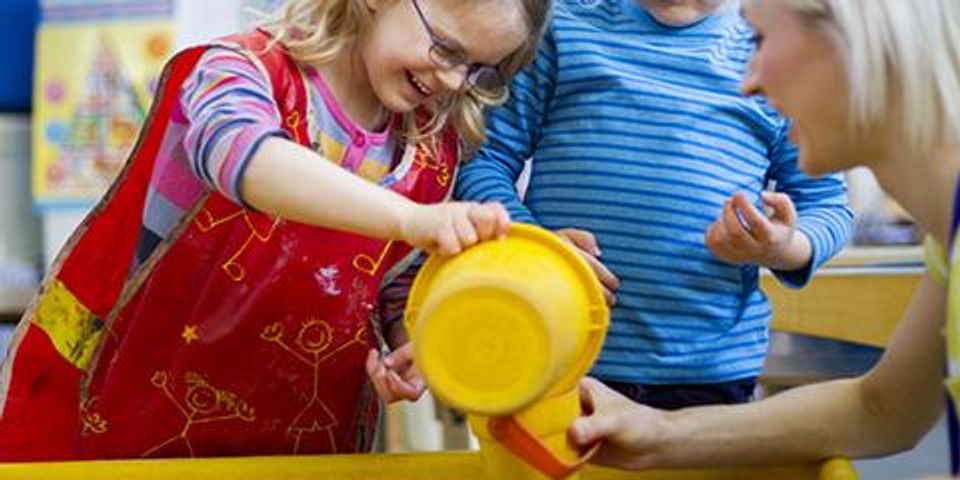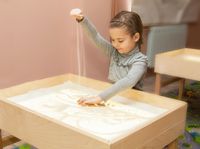5 Benefits of Sensory Tables for Preschool Children

Children are constantly learning. Every sight, sound, and smell is new and interesting to them, and these sensory experiences help them developmentally. Using a sensory table for preschool children is one of the best ways to guide young minds in exploring new textures and experiences through sand, water, and other materials. Here are the top five benefits of using these learning tools.
Why Sensory Tables Help Preschool Children
1. Creativity & Exploration
Children are allowed to explore without limitation when they use a sensory table. Objects can be buried in sand, water, packing peanuts, rice, shaving cream, and more, allowing them free rein to dig deep and discover what is underneath. They can see how different objects react in different environments and will begin to experiment with ideas.
2. Fine Motor & Cognitive Development
 Fine motor skills are the precise movements that improve as preschool children plunge their hands into sand, clay, or water to retrieve objects of varying sizes and shapes. Mixing up large, small, rough, and slippery items teaches them how to adjust their grasp. Besides physical improvements, educators can have children count, sort, and label what they find, helping them build their cognitive skills.
Fine motor skills are the precise movements that improve as preschool children plunge their hands into sand, clay, or water to retrieve objects of varying sizes and shapes. Mixing up large, small, rough, and slippery items teaches them how to adjust their grasp. Besides physical improvements, educators can have children count, sort, and label what they find, helping them build their cognitive skills.
3. Social Skills
Children play side by side at a sensory table. For younger children who aren’t fully interacting with other kids yet, sharing space is a learning experience. It teaches them to take turns and resolve a conflict over a toy. For those who will interact and play with each other, this improves their social and emotional development as they collaborate to form new ideas.
4. Language
Learning centers with sensory tables show children how to match words with the objects and textures they find. Not only will they be able to name each toy or utensil, but they will also learn how to describe it. Is it smooth or rough? Slimy or dry? Educators will spark conversations, asking for opinions and stories about what they find.
5. Attention Span
Sensory tables relax children and help build their attention span. When they are fully immersed in the table, students who are typically moving quickly from one activity to the next tend to slow down. The more involved they are, the calmer they become, which in turn helps them learn to focus on a task.
Lucky Lane Nursery School in the Greater St. Louis, MO, area has been the top early childhood development center for young children since 1951. Fully licensed and always putting the development of their students first, this preschool teaches motor, cognitive, emotional, and social skills through sensory tables, music, creative play, and more. For more information on the programs offered at this nursery school, visit them online or call (314) 434-4462.
About the Business
Have a question? Ask the experts!
Send your question

